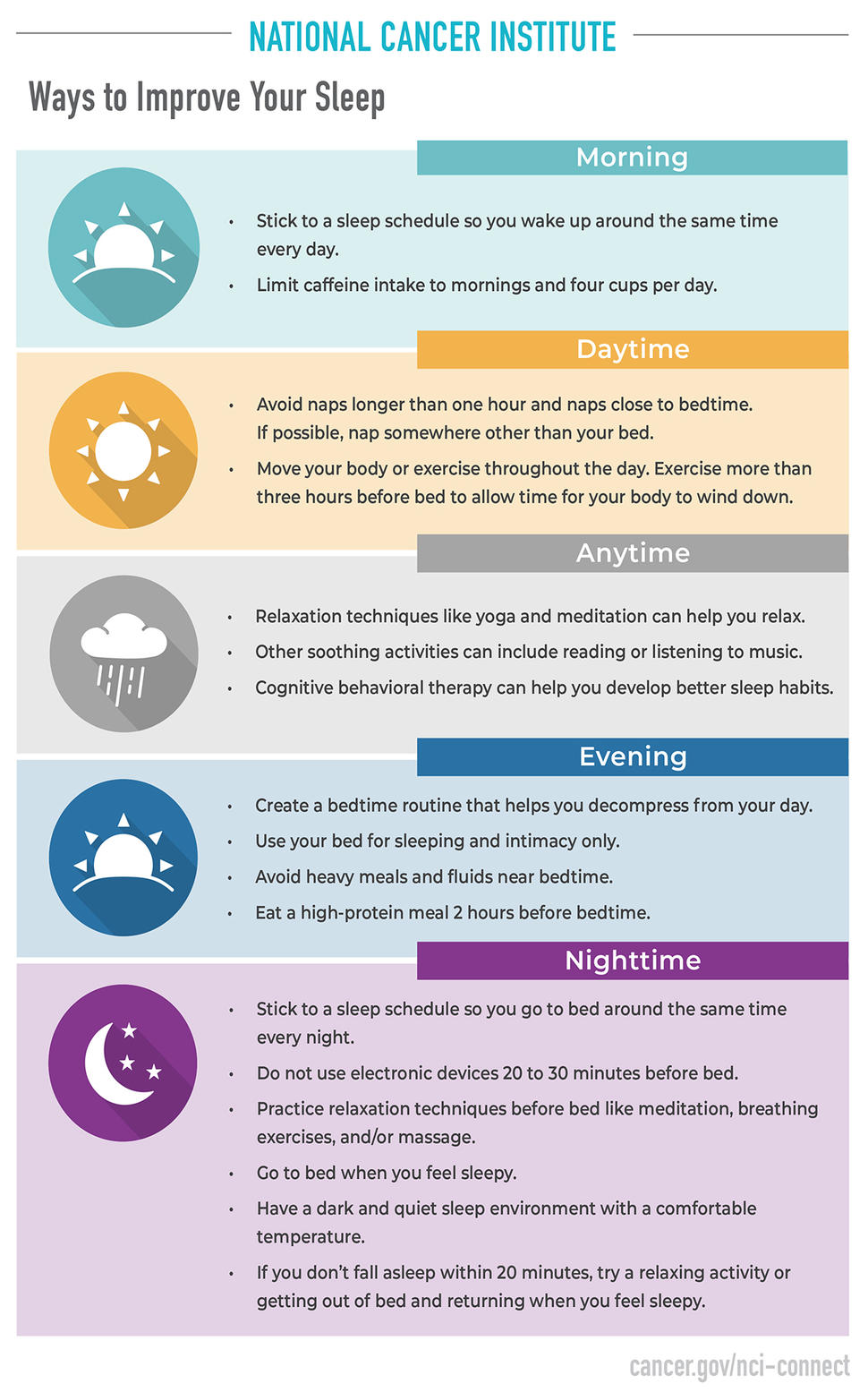What Is Sleep Disturbance?
Sleep allows your body to rest, recover, and reset for the next day. When sleep is interrupted or you are not getting enough sleep, it can impact your physical and mental health, as well as your day-to- day life. Sleep disturbance is a common symptom of a brain or spine tumor, and can be caused by physical changes, side effects from treatment, or cancer-related anxiety.
There are five major types of sleep disorders that affect normal sleep:
- Insomnia: being unable to fall and stay asleep
- Sleep apnea: a breathing disorder in which breathing stops for 10 seconds or more during sleep
- Hypersomnia: being unable to stay awake during the day
- Circadian rhythm disorders: problems with the sleep-wake cycle, making you unable to sleep and wake up at the right times
- Parasomnia: acting in unusual ways (such as walking, talking, or eating) while falling asleep, sleeping, or waking from sleep
Ways to Manage Sleep Disturbance
There are many ways you can manage and cope with sleep disturbance:
- Keep a daily log of your sleep (including naps and the amount of time you sleep at night), sleep disturbances, and what you are doing to manage your sleep disturbances using the My STORITM app or a journal.
- Ask your doctor about cognitive behavioral therapy.
- Ensure you have good sleep hygiene to improve the quality of your sleep. This involves:
- Having a dark, quiet sleep environment with a comfortable temperature
- Using your bed for sleeping and intimacy only, not for watching TV or working
- Sticking to a sleep schedule: go to bed and wake up around the same time every day
- Trying a relaxing activity if you do not fall asleep within 20 minutes—or get out of bed and return when you feel sleepy
- Napping somewhere other than your bed and avoiding naps longer than one hour or close to bedtime
- Talk to your doctor about adjusting your medication schedule. Corticosteroids and other medications may interfere with sleep if taken late in the day.
- Explore self-care activities that can help you cope with and improve your sleep, including diet, exercise, and sleep:
- Follow the diet your doctor recommends. Limit processed foods, which are pre-packaged and contain added sugars and fat.
- Eat plenty of fruits and vegetables.
- Eat a high-protein snack two hours before bedtime and six small meals throughout the day.
- Drink plenty of water to stay hydrated.
- Avoid alcohol, caffeine, and sugary drinks.
- Avoid drinking fluids and eating heavy meals before bedtime.
- Avoid exercising within three hours of bedtime as it can lead to interrupted sleep.
- Reduce anxiety by using mindfulness-based stress reduction strategies (such as yoga and meditation), which help you recognize your emotions, thoughts, and bodily feelings to deal with stressful experiences. Other soothing activities include reading or listening to music.
When to Report Sleep Disturbance
Discuss any concerns with your doctor. Share the symptoms you’ve logged and your self-care activities.
- Ask your health care provider when and how to report your symptoms.
- Report if your sleep disturbance is severe (e.g., shorter duration of sleep, inability to stay awake during the day, or interference with your daily activities), if your sleep disturbance continues to get worse, or if your symptoms do not improve with your self-care activities.
- Ask your doctor what you should do in case of an emergency and when your sleep disturbances should be reported immediately.

